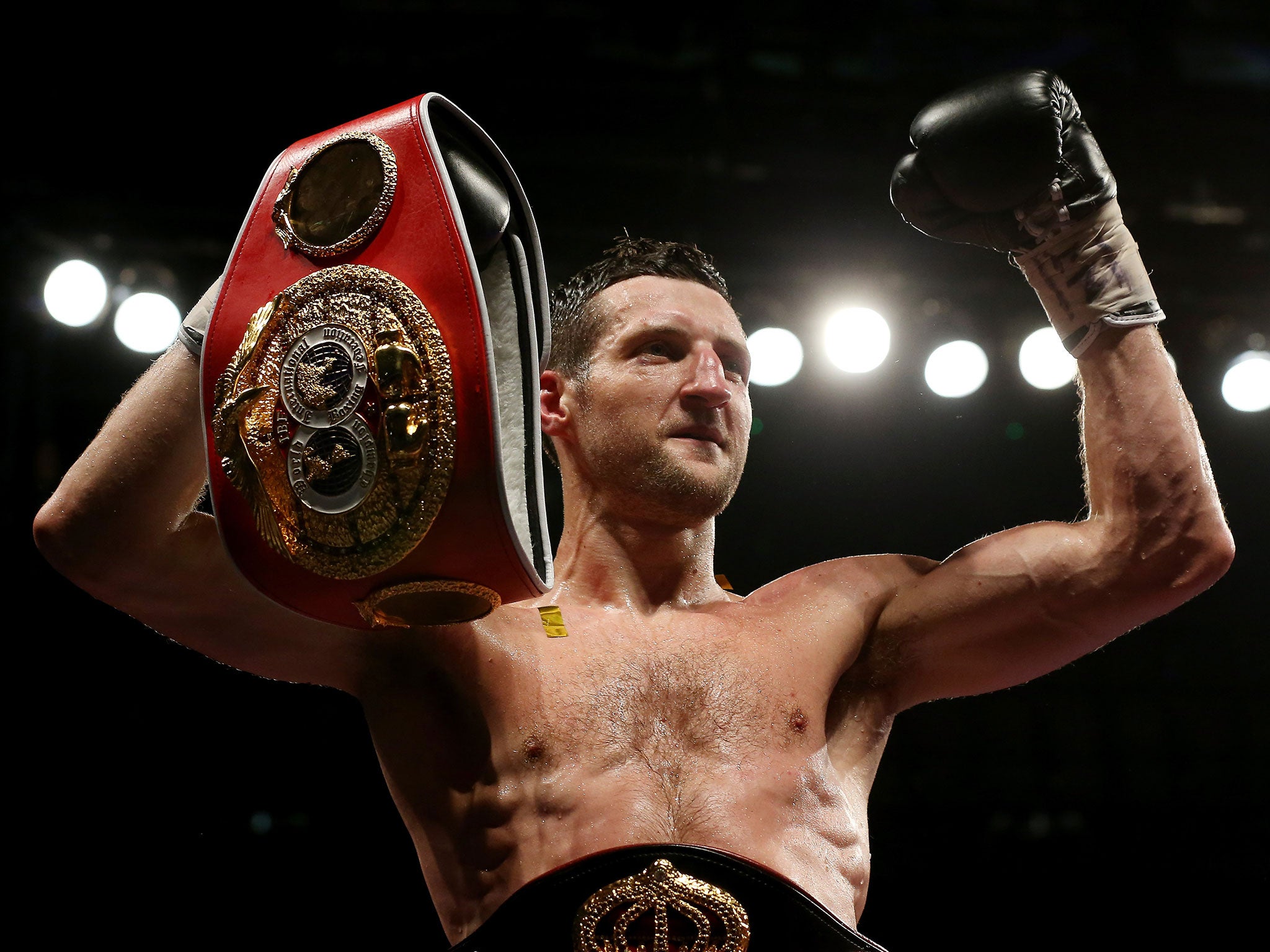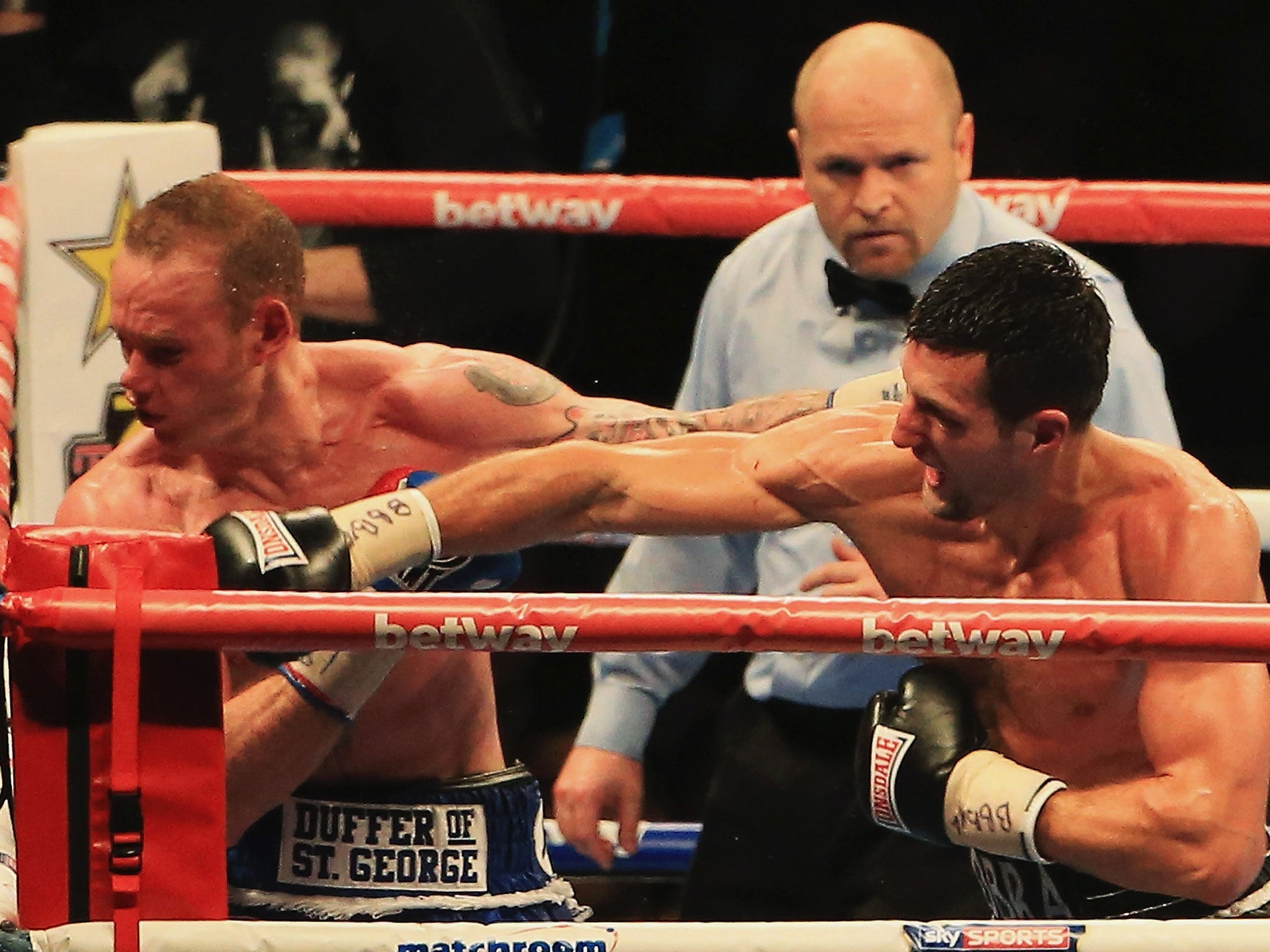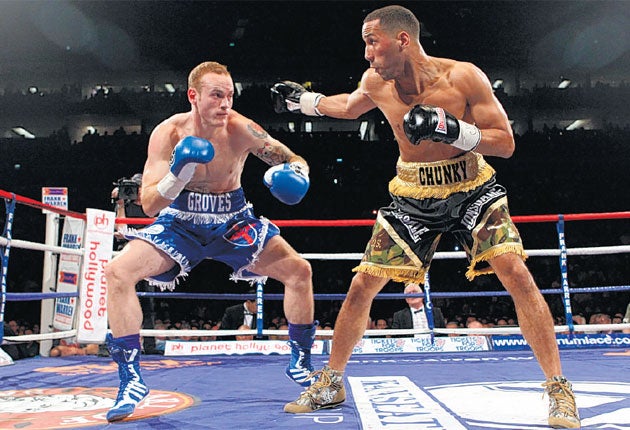Steve Bunce: As his dream of a Las Vegas world-title defence dies, Carl Froch is as good as retired – he really has nothing else left to prove
Froch might dislike DeGale immensely but is shunning him as he simply does not need or want a fight against him

Sir Henry Cooper was the same age as Carl Froch when he walked away from boxing in 1971, after a controversial defeat to Joe Bugner at the end of 15 torrid rounds one night at a smoke-filled Empire Pool, Wembley.
Cooper was 37, it was his 55th fight and for the best part of 12 years he had been the British heavyweight champion, a double winner of Sports Personality of the Year and famous for a couple of bloody fights with Muhammad Ali. He retired to a life of swinging golf clubs for charity, appearances in variety shows and finally a stint as a pundit on the boxing scene. He also ran out of money.
Froch has the millions Cooper never made and “Our ’Enry” had the love of a nation that Froch has been searching for since the first of his 12 world-title fights in 2008. It has been a complex relationship between the Nottingham fighter, the public, his opponents and the media at times over the years. I find the conflict odd because, having first met him 15 years ago, I know that he is just the consummate professional and that the boxing is all that matters.
Cooper was adored, his shortfalls overlooked and his lack of success at the elite level ignored. With each plucky failure against world-class fighters like Floyd Patterson, Ingemar Johansson and Zora Folley, his profile was raised. He was a fighting treasure and it was not just because of the short left hook that dumped the then Cassius Clay in 1963.
Froch moved a step closer to walking away from the ring this week when he officially announced that he will not be fighting until the summer; he has a bad elbow, so the press release said, but in reality he is in the boxing doldrums and at a loss for a reason to continue fighting.
There was bold but misleading talk of a bout in Las Vegas against Julio Cesar Chavez Jnr but the planned fight in March, which was widely reported as a done deal, has predictably fallen through. Chavez is a nightmare to do business with and, after six or more months of discussions, promises and broken promises, the fight is off. Froch’s elbow injury happened at about the same time and it is obvious that he has heard enough from the men trying to get him out to Las Vegas for a world-title contest, which was the one thing that he wanted to do before retiring.

It is often difficult to get near the truth on the safe side of the ropes in boxing, where an odd mix of lies – both big and small – shapes most so-called certainties. It is a business where the bravest of men lose their bottle when asked a simple question and where others, who often conduct deals worth millions, have trouble telling right from wrong. Froch is understandably annoyed at the continued failure to secure any form of final agreement on the Chavez fight and he is right now, make no mistake, as good as retired from the boxing business.
At the end of last month, Froch was told by the IBF, a sanctioning body based in New Jersey, that he had until the end of January to agree terms for a fight against James DeGale, the kid from Harlesden who won Olympic gold in Beijing. Now, Froch dislikes DeGale immensely and was always unlikely to agree terms to defend his title against him in a fight that would not help his career in any way. DeGale, by the way, has developed into an impressive fighter but Froch is not ignoring him because of his talents, he is shunning him because he simply does not need him or want him. Froch made it clear last summer to the men in charge of his career that he wanted a fight in Las Vegas and then he would retire. The message was very clear and Froch is the ultimate black-and-white warrior.

Froch can now sit back, play with his children, take stock of his property portfolio and watch reruns of the night last May when over 80,000 applauded his knockout of George Groves at Wembley. There are no lingering fistic ghosts in his closet, nobody in his head to stop him sleeping like a baby and that, for any boxer, is the dream of retirement. Cooper never forgave Bugner or the referee, Harry Gibbs, for the decision that sent him early to a long life away from the fighting. Froch will embrace that absence with a smile, he deserves his leave and his elbow can gently mend as he puffs on a Cohiba Esplen-dido.
Join our commenting forum
Join thought-provoking conversations, follow other Independent readers and see their replies
Comments
Bookmark popover
Removed from bookmarks